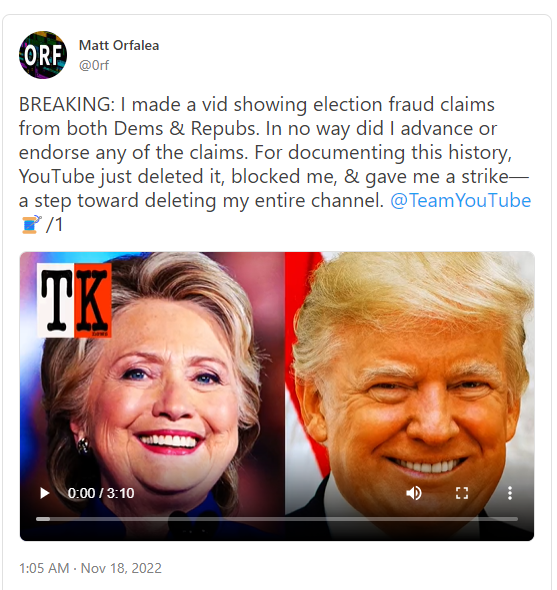Russian Interference with the 2016 U.S. Election . . .
Matt Bivens describes the extent to which Russian Facebook postings swung the 2016 election:
Chest-thumping about how the FBI needs to drive the dastardly foreigners out of our Facebook and Twitter feeds was, of course, not new. It was always eye-rolling to anyone who looked into it.
For example, we’d been told it was a major national security concern that the Russians were using our own Facebook against us — dividing us from within, with devious and manipulative ad purchases! — because they hated our freedoms. But as summarized in the Columbia Journalism Review, at issue was a mere $100,000 in “Russian” Facebook ads over the entire election season, at a time when Facebook’s advertising revenue per day, much of it political in that pre-election moment, was running about $96 million. So the entire alleged months-long Russian propaganda campaign would have amounted to less than 0.1 percent of a single day’s Facebook ads.
(It gets even more ludicrous. The ads were of no actual coherence — they were obviously nothing more than random, revenue-generating clickbait. As cited by solemn U.S. Congress reports, “the Russians” had spent their $100,000 on a bunch of nonsense — ranging from ads for fake hotlines to get help with masturbation addiction, to banners with the words “Born Liberal!” over a peaceful skycape of birds. So this was almost certainly not a devious Kremlin-directed plot, and instead simply the sleazy-lazy business of spam and clickbait.)
For me, the symbolic pinnacle of this insanity was a cartoon supposedly weaponized against us by our Russian adversaries. It was of a muscular, rainbow-colored Bernie Sanders:
Rainbow Buff Bernie ran for a single day in 2016. It was clicked on 54 times. Yet the U.S. House Intelligence Committee addressed this social media posting as part of a formal report into Russian meddling in our affairs. It was a matter of the highest concern. The House report informed us “the Russians” paid the exchange rate equivalent of $1.60 for this. Buzzfeed at the time solemnly reported these “facts” — $1.60, spent to buy 54 clicks — yet instead of mocking Congress and the FBI for this lunacy, they dutifully tracked down the American citizen who originally drew the cartoon for a pro-Bernie Sanders coloring book, so that she could explain herself! (She told them, “I feel pretty violated and very confused!”)
Clearly by 2020 we needed the FBI and the national media working hand-in-hand to police our social media — because Russia! Iran!
[More . . . ]

